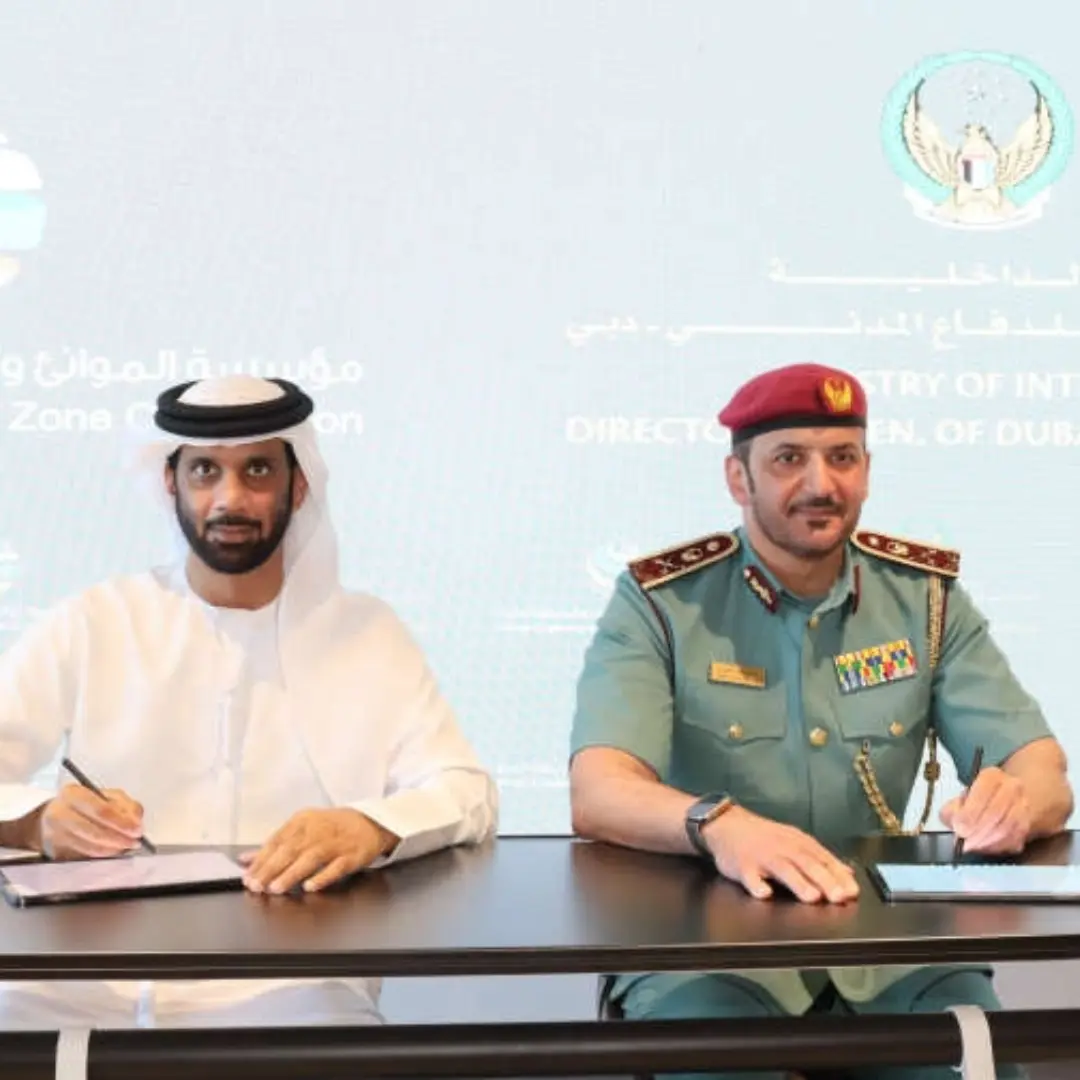In a strategic move to bolster safety and preventive measures, the Dubai Civil Defense (DCD) and the Ports, Customs, and Free Zone Corporation (PCFC) have signed a landmark Memorandum of Understanding (MoU). This partnership aims to enhance safety protocols and strengthen preventive strategies across a multitude of sectors and facilities, marking a significant step forward in Dubai’s commitment to creating a secure and resilient environment.
The MoU between DCD and PCFC signifies a collaborative effort to leverage each organization’s strengths and expertise in safety and security. The agreement outlines a framework for cooperation, knowledge sharing, and the implementation of advanced safety measures that will benefit a wide array of sectors, including maritime, logistics, trade, and industrial zones.
One of the primary objectives of this MoU is to enhance the effectiveness of preventive measures. By integrating advanced technologies and best practices, DCD and PCFC aim to mitigate risks and ensure swift response capabilities in case of emergencies. This includes the deployment of state-of-the-art fire detection and suppression systems, comprehensive safety audits, and regular training programs for personnel across various facilities.
The collaboration is also set to focus on improving regulatory compliance. Ensuring that all facilities adhere to the highest safety standards is crucial for maintaining operational integrity and protecting lives and assets. The MoU will facilitate the development of stringent safety guidelines and protocols tailored to the specific needs of different sectors under PCFC’s jurisdiction. This proactive approach will help in identifying potential hazards and implementing corrective actions before they escalate into major incidents.
Another significant aspect of the MoU is the emphasis on innovation and technology. Both DCD and PCFC are committed to exploring and adopting cutting-edge technologies that can enhance safety and security. This includes the use of artificial intelligence for predictive analytics, drones for aerial surveillance, and IoT-enabled devices for real-time monitoring of critical infrastructure. By harnessing these technologies, the partnership aims to create a more responsive and adaptive safety ecosystem.
The agreement also highlights the importance of community engagement and awareness. Safety is a collective responsibility, and raising awareness about preventive measures among businesses and the general public is crucial. The MoU includes initiatives for conducting workshops, seminars, and public awareness campaigns to educate stakeholders about the importance of adhering to safety protocols and the role they play in ensuring a secure environment.
The signing of this MoU reflects Dubai’s proactive stance on safety and its dedication to fostering a culture of prevention and preparedness. It underscores the city’s strategic vision of becoming a global leader in safety standards, not only through regulatory compliance but also by embracing innovation and community involvement.
The impact of this collaboration is expected to be far-reaching. Enhanced safety measures and preventive protocols will not only protect lives and property but also contribute to the overall economic stability and growth of Dubai. Safe and secure environments are fundamental to attracting investment, promoting trade, and ensuring the smooth functioning of critical infrastructure.
In conclusion, the MoU between Dubai Civil Defense and the Ports, Customs, and Free Zone Corporation represents a significant milestone in Dubai’s journey toward enhanced safety and security. By combining their expertise and resources, these organizations are setting a new benchmark for preventive measures and safety protocols across various sectors. This partnership is poised to deliver long-term benefits, reinforcing Dubai’s reputation as a city that prioritizes the well-being of its people and the resilience of its infrastructure.









